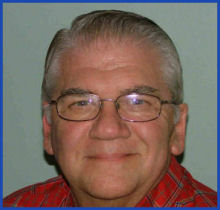Working as a Financial Manager (GS-0510) with the Federal Government
The federal government employs 13,078 in this occupation of which 79 work overseas. The DOD is the largest employer of this series with 2,409 accountants, the VA employs 775 and the Department of the Army employs 1,067 civilians in this category. This series is used in all cabinet level departments, most large agencies and many small agencies.

This series covers positions that advise on or administer, supervise, or perform professional accounting work that requires application of accounting theories, concepts, principles, and standards to the financial activities of governmental, quasi-governmental, or private sector organizations. The work includes:
- series covers positions that advise on or administer, supervise, or perform professional accounting work that requires application of accounting theories, concepts, principles, and standards to the financial activities of governmental, quasi-governmental, or private sector organizations. The work includes designing, developing, operating, or inspecting accounting systems;
- prescribing accounting standards, policies, and requirements;
- examining, analyzing, and interpreting accounting data, records, and reports; or
- advising or assisting management on accounting and financial management matters.
Accounting theories, concepts, principles and standards address these types of duties:
- determining the boundaries of an accounting entity;
- recognizing and measuring revenues;
- matching revenues and expenses by applying methodologies such as accrual accounting and depreciation;
- defining and measuring costs by applying methodologies such as standard, process, job-order, and activity-based costing; and, full disclosure on financial statements.
Government Requirements:
- You must be a U.S. citizen to apply
- The yearly salary for a GS-7 to 9 is $35,359 to $81,541 per year
Typical Duties & Occupational Profile:
Financial Managers perform data analysis and advise senior managers on profit-maximizing ideas. Financial managers are responsible for the financial health of an organization. They produce financial reports, direct investment activities, and develop strategies and plans for the long-term financial goals of their organization.
Duties
Financial managers typically do the following:
- Prepare financial statements, business activity reports, and forecasts
- Monitor financial details to ensure that legal requirements are met
- Supervise employees who do financial reporting and budgeting
- Review company financial reports and seek ways to reduce costs
- Analyze market trends to maximize profits and find expansion opportunities
- Help management make financial decisions
- The role of the financial manager, particularly in business, is changing in response to technological advances that have substantially reduced the amount of time it takes to produce financial reports. Financial managers’ main responsibility used to be monitoring a company’s finances, but they now do more data analysis and advise senior managers on ways to maximize profits. They often work on teams, acting as business advisors to top executives.
- Financial managers also do tasks that are specific to their organization or industry. For example, government financial managers must be experts on government appropriations and budgeting processes, and healthcare financial managers must know about topics in healthcare finance. Moreover, financial managers must be knowledgeable about special tax laws and regulations that affect their industry.
The role of the financial manager, particularly in business, is changing in response to technological advances that have substantially reduced the amount of time it takes to produce financial reports. Financial managers’ main responsibility used to be monitoring a company’s finances, but they now do more data analysis and advise senior managers on ways to maximize profits. They often work on teams, acting as business advisors to top executives.
Financial managers also do tasks that are specific to their organization or industry. For example, government financial managers must be experts on government appropriations and budgeting processes, and healthcare financial managers must know about topics in healthcare finance. Moreover, financial managers must be knowledgeable about special tax laws and regulations that affect their industry.
The following are examples of types of financial managers:
Controllers direct the preparation of financial reports that summarize and forecast the organization’s financial position, such as income statements, balance sheets, and analyses of future earnings or expenses. Controllers also are in charge of preparing special reports required by governmental agencies that regulate businesses. Often, controllers oversee the accounting, audit, and budget departments of their organization.
Treasurers and finance officers direct their organization’s budgets to meet its financial goals. They oversee the investment of funds and carry out strategies to raise capital (such as issuing stocks or bonds) to support the firm’s expansion. They also develop financial plans for mergers (two companies joining together) and acquisitions (one company buying another).
Credit managers oversee their firm’s credit business. They set credit-rating criteria, determine credit ceilings, and monitor the collections of past-due accounts.
Cash managers monitor and control the flow of cash in and out of the company to meet business and investment needs. For example, they must project cash flow to determine whether the company will have a shortage or surplus of cash.
Risk managers control financial risk by using strategies to limit or offset the probability of a financial loss or a company’s exposure to financial uncertainty. Among the risks they try to limit are those that stem from currency or commodity price changes.
Insurance managers decide how best to limit a company’s losses by obtaining insurance against risks, such as the need to make disability payments for an employee who gets hurt on the job or the costs imposed by a lawsuit against the company.
Education
A bachelor’s degree in finance, accounting, economics, or business administration is often the minimum education needed for financial managers. However, many employers now seek candidates with a master’s degree, preferably in business administration, finance, accounting, or economics. These academic programs help students develop analytical skills and learn financial analysis methods and software.
Licenses, Certifications, and Registrations
Although professional certification is not required, some financial managers still get it to demonstrate a level of competence. The CFA Institute confers the Chartered Financial Analyst (CFA) certification to investment professionals who have at least a bachelor’s degree, 4 years of work experience, and pass three exams. The Association for Financial Professionals confers the Certified Treasury Professional credential to those who pass an exam and have a minimum of 2 years of relevant experience. Certified public accountants (CPA’s) are licensed by their state’s board of accountancy and must pass an exam administered by the American Institute of Certified Public Accountants (AICPA).
Work Experience in a Related Occupation
Financial managers usually have experience in another business or financial occupation. For example, they may have worked as a loan officer, accountant, securities sales agent, or financial analyst.
In some cases, companies provide formal management training programs to help prepare highly motivated and skilled financial workers to become financial managers.
Advancement
Experienced financial managers can advance to become chief financial officers (CFOs). These executives are responsible for the accuracy of an entire company’s or organization’s financial reporting.
Important Qualities
Analytical skills. Financial managers increasingly are assisting executives in making decisions that affect their organization, a task that requires analytical ability.
Communication skills. Excellent communication skills are essential because financial managers must explain and justify complex financial transactions.
Detail oriented. In preparing and analyzing reports such as balance sheets and income statements, financial managers must be precise and attentive to their work in order to avoid errors.
Math skills. Financial managers must be skilled in math, including algebra. An understanding of international finance and complex financial documents also is important.
Organizational skills. Because financial managers deal with a range of information and documents, they must stay organized to do their jobs effectively.
(Some of the above information was excerpted from the Bureau of Labor ooh.gov website)
GS-0510-Financial Management Analyst/Accountant/Auditor
General qualifications excerpted from job Announcement # DE-10047630-17-SMS.
Duties
The selectee for this position will serve as a Financial Management Trainee with the Financial Management Career Program (FMCP).
The Financial Management Trainee Program (FMTP) is a 24-month training program for entry-level financial managers referred to as “Trainees.” To qualify for this program, you must have earned a qualifying bachelor’s degree within the past two years. Recent college graduates are hired by the FMCP for the DON as entry-level (GS-7/9/11) financial management analysts, accountants, and auditors (job series 501, 510, and 511, respectively). Trainees are officially assigned to the FMCP but are stationed at various Navy and Marine Corps activities, referred to as “Homeports,” throughout the DON. Following successful completion of their 24-month training program, Trainees graduate from the program and are considered for placement in suitable positions at their Homeports.
“The Financial Management Associate Program (FMAP) is a 24-month program for mid-level financial management personnel referred to as “Associates.” To qualify for this program, you must have earned a qualifying master’s degree within the past two years. Recent college graduates with relevant financial management analyst experience are hired by the FMCP as DON mid-level (GS-9/11/12) Financial Management Analysts, Accountants, and Auditors (job series 501, 510, and 511 respectively). Associates are officially assigned to the FMCP but are stationed at various Navy and Marine Corps activities, referred to as “Homeports.” Following successful completion of their 24-month program, FMAP Associates graduate from the program and are considered for placement in suitable positions at their Homeports”.
This is a Financial Management Level I certified position per the National Defense Authorization Act (NDAA) 2012, Section 1599d. This certification level must be achieved within prescribed timelines. Certification requirements are outlined in the DoD Instruction 1300.26.
Qualifications
The Direct Hire Authority for Financial Management Experts in the Department of Defense is used to appoint qualified candidates who possess a finance, accounting, management, or actuarial science degree, other related degree, or equivalent experience, to certain positions within the competitive service
Applicants applying to the Accountant or Auditor positions must meet the following basic education requirement:
Degree: accounting; or a degree in a related field such as business administration, finance, or public administration that included or was supplemented by 24 semester hours in accounting. The 24 hours may include up to 6 hours of credit in business law. Combination of education and experience: at least 4 years of experience in accounting, or an equivalent combination of accounting experience, college-level education, and training that provided professional accounting knowledge. The applicant’s background must also include one of the following:
1)Twenty-four semester hours in accounting or auditing courses of appropriate type and quality. This can include up to 6 hours of business law;
2) A certificate as Certified Public Accountant or a Certified Internal Auditor, obtained through written examination.
3) Completion of the requirements for a degree that included substantial course work in accounting or auditing, e.g., 15 semester hours, but that does not fully satisfy the 24-semester-hour requirement of paragraph A.
(a) the applicant has successfully worked at the full-performance level in accounting, auditing, or a related field, e.g., valuation engineering or financial institution examining;
(b) a panel of at least two higher level professional accountants or auditors has determined that the applicant has demonstrated a good knowledge of accounting and of related and underlying fields that equals in breadth, depth, currency, and level of advancement that which is normally associated with successful completion of the 4-year course of study described in paragraph A.
(c) except for literal nonconformance to the requirement
of 24 semester hours in accounting, the applicant’s education, training, and experience fully meet the specified requirements.
Additional information
This position is covered by the Department of Defense Priority Placement Program.
This position has promotion potential to the GS-11 (Trainee Program) or GS-12 (Associate Program) grade. If selected below the full performance level, incumbent may be noncompetitively promoted to the next higher grade level after meeting all regulatory requirements, and upon the recommendation of management. Promotion is neither implied nor guaranteed
Job Prospects (Excerpted from Occupational Handbook (OOH) published by the Department of Labor)
Employment of financial managers is projected to grow 19 percent from 2016 to 2026, much faster than the average for all occupations. However, growth will vary by industry.
Services provided by financial managers, such as planning, directing, and coordinating investments, are likely to stay in demand as the economy grows. In addition, several specialties within financial management, particularly cash management and risk management, are expected to be in high demand over the next decade.
In recent years, companies have accumulated more cash on their balance sheets, particularly among those with operations in foreign countries. As globalization continues, this trend is likely to persist. This should lead to demand for financial managers as companies will be in need of cash management expertise.
There has been an increased emphasis on risk management within the financial industry, and this trend is expected to continue. In response to both the financial crisis and financial regulatory reform, banking institutions will place a greater emphasis on stability and managing risk rather than on maximizing profits. This is expected to lead to employment growth for risk managers.
The depository credit intermediation industry (which includes commercial and savings banks) employs a large percentage of financial managers. As bank customers increasingly conduct transactions online, the number of bank branches is expected to decline, which should limit employment growth in this sector. However, employment declines are expected to mainly affect clerical occupations, such as tellers, rather than financial managers. From 2016 to 2026, employment of financial managers is projected to grow 14 percent in this industry.
As with other managerial occupations, jobseekers are likely to face competition because there are more applicants than job openings. Candidates with expertise in accounting and finance—particularly those with a master’s degree or certification—should enjoy the best job prospects.
Resources
Helpful Career Planning Tools
The information provided may not cover all aspects of unique or special circumstances, federal and postal regulations, and programs are subject to change. Our articles and replies are time sensitive. Over time, various dynamic human resource guidance and factors relied upon as a basis for this article may change. The advice and strategies contained herein may not be suitable for your situation and this service is not affiliated with OPM, the postal service or any federal entity. You should consult with school counselors, hiring agency personnel offices, and human resource professionals where appropriate. Neither the publisher or author shall be liable for any loss or any other commercial damages, including but not limited to special, incidental, consequential, or other damages.







